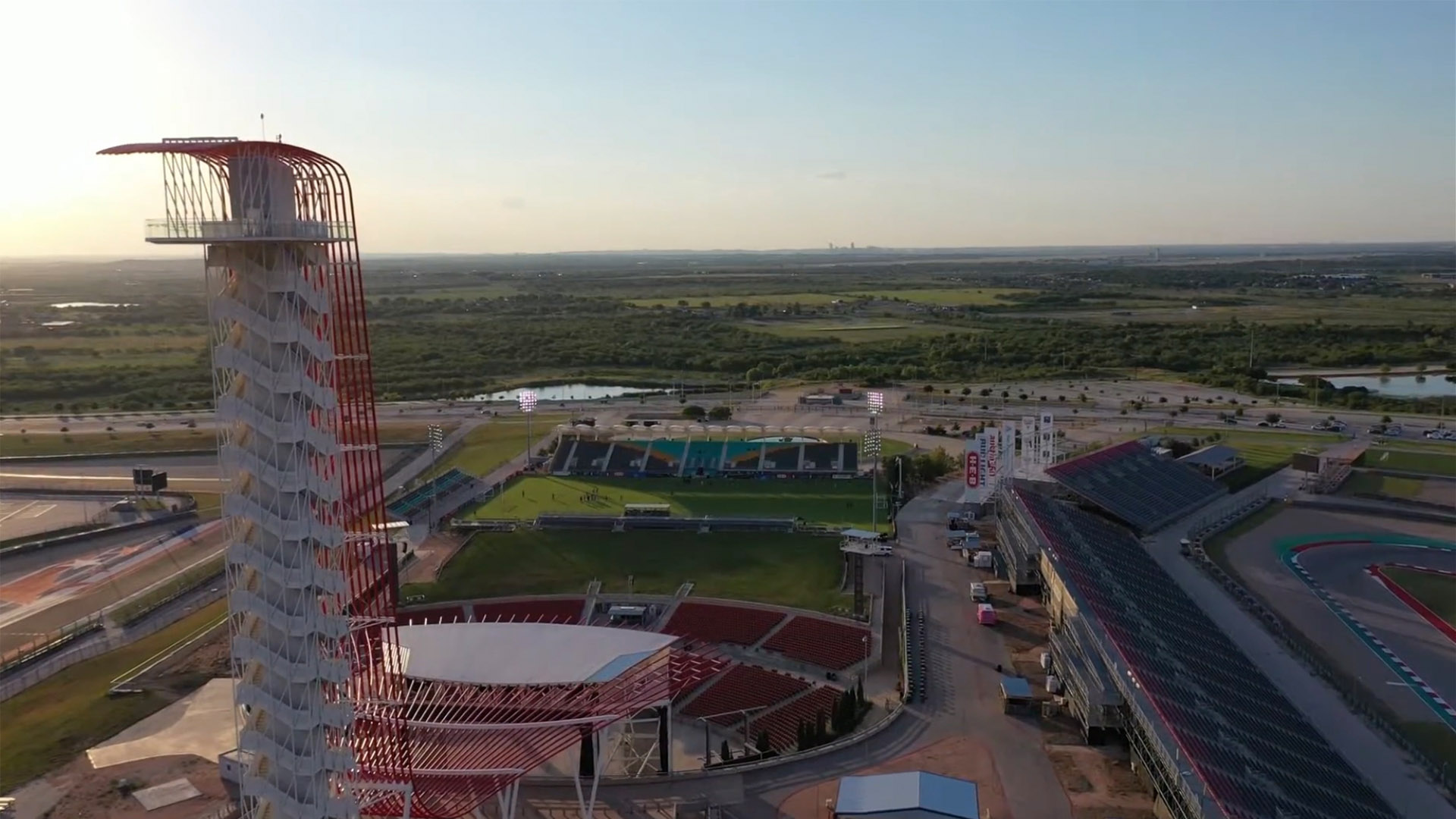‘There's No Partnership With The Communities’: Del Valle Talks COTA Impact
On a rainy weekend in May, the first NASCAR race this year at Circuit of The Americas brought thunderous roars to Del Valle.
“Several nights throughout the year I hear this zoom, zoom, zoom, and it’s those cars. That’s how close I am to it,” Christina Muhammad, who lives about a mile from COTA, says.
Since the host to Formula One racing, music concerts and more opened in 2012, surrounding Del Valle residents have been severely impacted by having the 1,500 acre entertainment complex in their backyard. From lack of infrastructure to loud noise and increased traffic, it has not been a positive experience for many of them.
“It's a lot of distractions for people who are not interested,” Muhammad says.
When plans to build the entertainment venue began more than a decade ago, Del Valle community members welcomed the development. Promises of new roads, a local grocery store and jobs were enticing to residents. But, Alfonzo Murray, who lives in sight of the track, says the infrastructure upgrades never came.
“It didn't drag roads and then drag better intersections. It didn't drag sidewalks. It didn't drag anything but money to COTA and the city of Austin and everybody else has to just take it. That's a major slap in the face,” Murray says.
While thousands of people attend music concerts and sporting events at COTA, the Formula One races that they host bring in more than 100,000 to the area. With many of the roads in Del Valle only being one lane, the influx of visitors often causes gridlock.
Austin Bold FC plays a match at Circuit of The Americas in 2020. Photo courtesy of Mark Alexin.
“Traffic is a hot mess. During those times, people trying to get in, it’s like a waiting zone here,” Muhammad says.
One of the often boasted benefits of a major development is jobs, but community members believe this too was a promise unfulfilled. While COTA claims to employ 300 full time employees and 3,000 seasonal employees, Marilú Fructuoso who occasionally works for COTA as a transportation driver says job opportunities are few and far in between.
“They are not giving us work,” Fructuoso says. “If they give us work, it's not even part time at times.”
Representatives of COTA declined a request to be interviewed, but a 2014 report commissioned by the development boasted a $514.9 million direct economic impact on the Austin metropolitan area. The report lists area retailers, entertainment establishments, hotels and restaurants as the beneficiaries of this economic impact but these businesses largely do not exist in Del Valle. Austin City Council Member Vanessa Fuentes represents part of the Del Valle community.
“It certainly has been an economic driver in the region for us, but there's still a lot of work to be done. And even for the Del Valle community, there's still a lot of need,” Fuentes says. “Southeast Travis County, in general, is vulnerable to displacement and we're witnessing rapid growth in the area, especially with Tesla moving in.”
With developments like the Tesla plant expected to open in Del Valle later this year, increasing taxes are already making the area less affordable. Residents of Del Valle ISD are facing an estimated 16.2% increase in residential homestead median taxable value this year, the highest percentage increase of any school district in Travis County.
“When we first got here, I think our property taxes were like, I want to say, $1,200 or something like that a year. Shoot, we’re up to $3,000 plus right now,” Muhammad says. “It's very expensive and we the people cannot afford it.”
Growth in the region is expected to continue. In October 2020, the Austin City Council voted to rezone 1,155 acres around COTA allowing for a mixed-use development to be built. But, Muhammad says that many of the issues the Del Valle community has with COTA continue to be unaddressed, which leaves the future uncertain for residents.
“I got to worry about traffic and worry about this and my property taxes going up because you're here in the community,” Muhammad says. “I think before people bring things into our community, they need to hear from the residents and they need to let us know, ‘How is this going to affect me?’”
Community journalism doesn’t happen without community support.
Got story ideas, advice on how we can improve our reporting or just want to know more about what we do? Reach out to us at news@klru.org.
And if you value this type of reporting, then please consider making a donation to Austin PBS. Your gift makes the quality journalism done by the Decibel team possible. Thank you for your contribution.
More in Politics:
See all Politics posts






Contact Us
Email us at news@klru.org